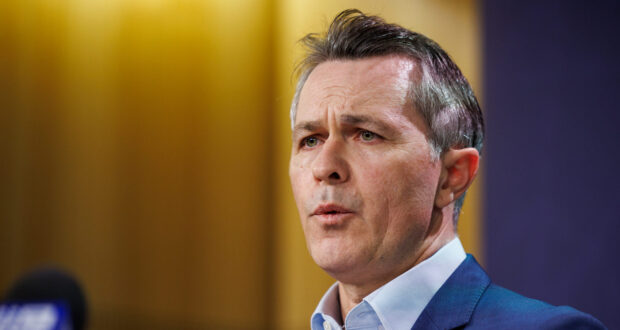The federal government on Saturday announced it will change the way HECS-HELP and apprenticeship support loans are indexed, backdated to June 1, 2023.
The changes, under Universities Accord recommendations, will wipe last year's record 7.1 per cent indexation, along with this year's speculated 4.7 per cent hike.
These numbers are linked to the consumer price index (CPI), which has increased enormously in the past two years in a high inflation environment.
If indexation remained linked to CPI, it would mean those who earn less than $65,000 a year, even after repayments, would still have a debt higher than it was two years ago.
Loan increases will now be tied to whichever is lower out of CPI or wage price index (WPI), which records wage growth, meaning students will now only face a rise of 3.2 per cent from last year.
The adjustment will be rolled over as a credit, which together with a cut in this year’s indexation rate from 4.7 per cent to 4 per cent, will see $1200 wiped from the average debt of $26,500.
The changes are meant to support young people and young families who struggle to pay off their HECS amid cost-of-living and a rental/housing crises.
The prospect of HECS debts have caused some prospective students to avoid university study, and others with a debt to be refused a home loan.
The changes will wipe $3bn in debt for about three million people.
Skills and Training Minister Brendan O’Connor said by backdating this reform to last year, the government was ensuring last year’s indexation jump would receive cost-of-living relief.
“This continues our work to ease cost of living pressures and reduce and remove financial barriers to education and training,” he said.
“These changes make sure that help is provided on a fairer basis.”
Paid mandatory placements
Nursing, teaching, social work and midwifery students required to complete unpaid practical placements will also be eligible for a $319-a-week payment under a move to reduce financial barriers to graduating.
The means-tested support payment will also be funded in the Albanese government’s upcoming federal budget, and is due to kick in from July 2025. It will support about 68,000 university and 5000 VET students a year.
Benchmarked to the single Austudy weekly rate, the cost-of-living relief is aimed at helping more students start and finish their studies in critical areas of need across the healthcare and education sectors.
Education Minister Jason Clare said the payment would give students a “bit of extra help to get the qualifications they need”.
“Placement poverty is a real thing,” Mr Clare said.
“Some students say ‘prac’ means they have to give up their part-time job and that they don’t have the money to pay the bills.”
Some students have to complete up to 1000 hours in unpaid mandatory work placement, causing them to have to choose between study and work commitments.
Do you have an idea for a story?Email [email protected]
 Campus Review The latest in higher education news
Campus Review The latest in higher education news

